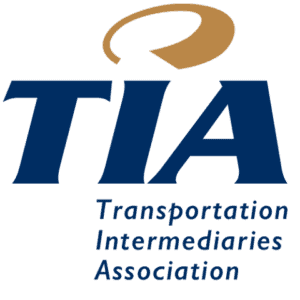Professionals in the supply chain logistics industry know that continued education is vital to ongoing success. Few instances gave companies a greater learning curve as to the vulnerability of their supply chain than the COVID-19 pandemic.
This made 2020 a pivotal year where all industries recognized the necessity of optimizing their supply chains to make them as impenetrable to unexpected circumstances as possible. In 2021, here’s what we expect to see trending in supply chain logistics to help in this initiative:
- Companies Will Be Open To The Automation of Processes Using Technology: In 2018, BCI reported that 63% of businesses do not use any technology to monitor their supply chain systems. Fast forward to 2020, where we found more companies embracing technology to automate systems that don’t require a human touch, such as picking, packing, and even delivery. In 2021, we expect to see more tech-driven automation as consumer bases continue to grow, leaving companies free to reallocate their human capital to performing tasks that directly impact the customer experience.
- There Will Be More Outsourcing Of Parts Of The Supply Chain That Are Underperforming: As supply chains grow in complexity, additional working parts are needed to keep products moving efficiently. Internal executives will need support to optimize certain parts of their systems that aren’t working as well as they should be, such as manufacturing, supply chain logistics, and inventory management. In 2021, look for companies to increasingly rely on outsourced supply chain professionals to improve the efficiency of virtually any aspect of their process. It’s the most cost-effective way to ensure your products continue to move as smoothly as possible.
- Businesses Will Be Open To New Ways Of Thinking: 2020 showed us that the old ways of doing things might not be sufficient enough when a crisis develops. This has given companies the opportunity to question the way they have done things in the past, and affect change to the status quo in order to protect the future. Evolving customer expectations have also forced companies to adjust their supply chains in order to stay competitive, especially in the rapidly growing world of e-commerce. Many service providers can introduce new optimization strategies to your system, as can the next generation of supply chain professionals who are not only already comfortable with technology, but also are becoming a large part of the consumer market.
Read More: The Changing Nature of Supply Chain Recruitment
- The Focus Of Supply Chain Logistics Will Be On Long-Term Strategies Instead Of Costsf: One of the biggest adjustments to supply chain logistics we’re expecting in 2021 will be companies ceasing to look at costs as numbers, but rather acknowledging the value they’re getting behind those costs. Like most things in life, you get what you pay for, and oftentimes the lowest rate you’re getting from a service provider will not provide what you need for the long-term health of your supply chain. Poor solutions will cost you more in the long run, but future-focused supply chain strategies will bring you significantly more savings. The upfront investment and ongoing costs might be slightly higher, but the dividends will be more than worth it over time.
- Investment In The Right People, Process, And Technology Based On Expert Opinions Of Supply Chain Professionals: In days past – long past – supply chains simply involved arranging transport of your products from Point A to Point B. With an exploding consumer market due to the globalized economy, supply chain logistics are more complex now than ever before. Modern supply chains need an integrated approach that combines the right people, process, and technology, as well as guidance from supply chain professionals who can help you put it all together and make it work. It’s also less frustrating than trying to put all the pieces of the supply chain puzzle in place yourself.
- Increase In Supply Chain Flexibility: As we saw during the pandemic, it’s not enough to simply have a lean supply chain process, but rather have one that is flexible enough to respond to outside influences. This will require the ability to shrink, expand, or adjust supply chain components with speed and dexterity – not as a “knee jerk” reaction, but rather as an important part of an all-around responsive solution. Expect added flexibility to be a crucial part of sustainable supply chains through 2021.
- Companies Will Be More Open With Their Data: Traditionally, businesses have been guarded with their data, including information about their suppliers, costs, processes, and technology. Although concerns about information security are completely understandable, more companies will begin sharing more openly with their supply chain provider so their systems can be properly diagnosed, fixed, and optimized. Of course, detailed NDAs will continue to be a part of the process.
Partnering with experienced supply chain providers can help companies adopt innovative ways to ensure that their products continue to move efficiently under any circumstances. With the right supply chain logistics partner in place, 2021 will be a brighter year for both manufacturers and consumers.
If you’re interested in learning how Cedric Millar can significantly transform your current supply chain into a more sustainable, flexible model, we’d love to chat with you. Just contact us at 1-888-998-1009 or via email at info@cedricmillar.com anytime for a no-obligation discussion.












